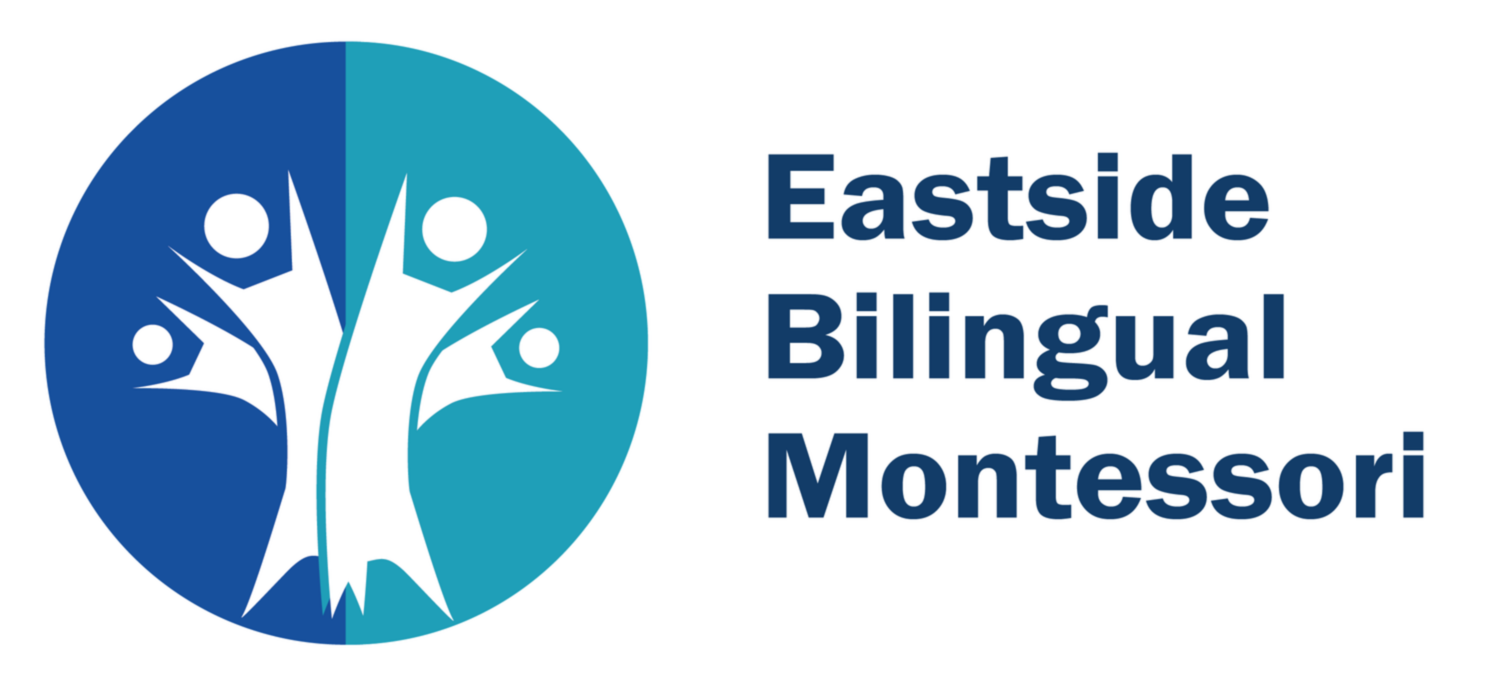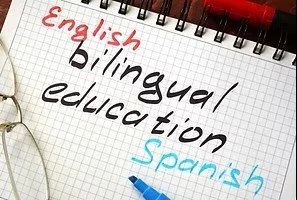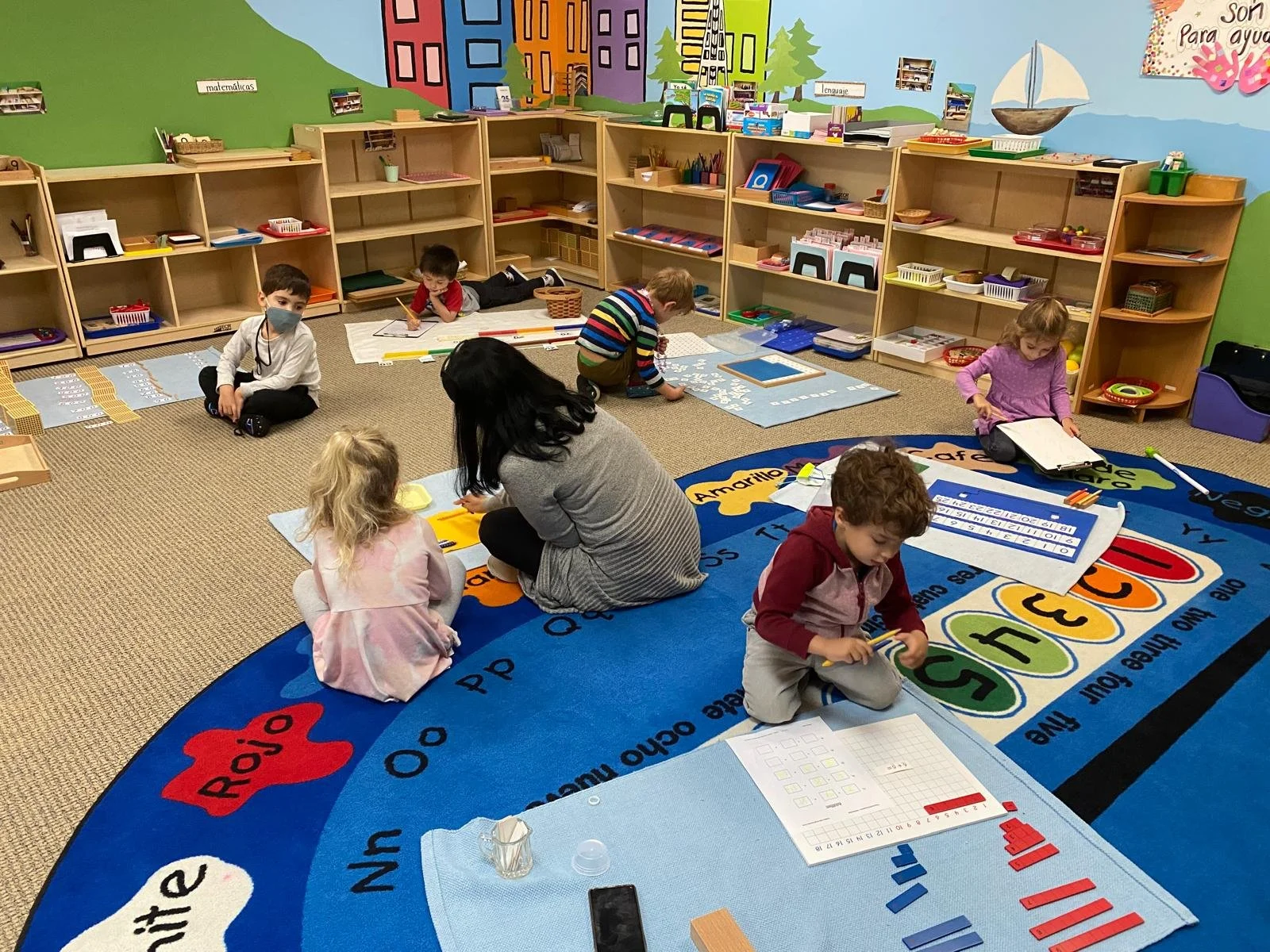
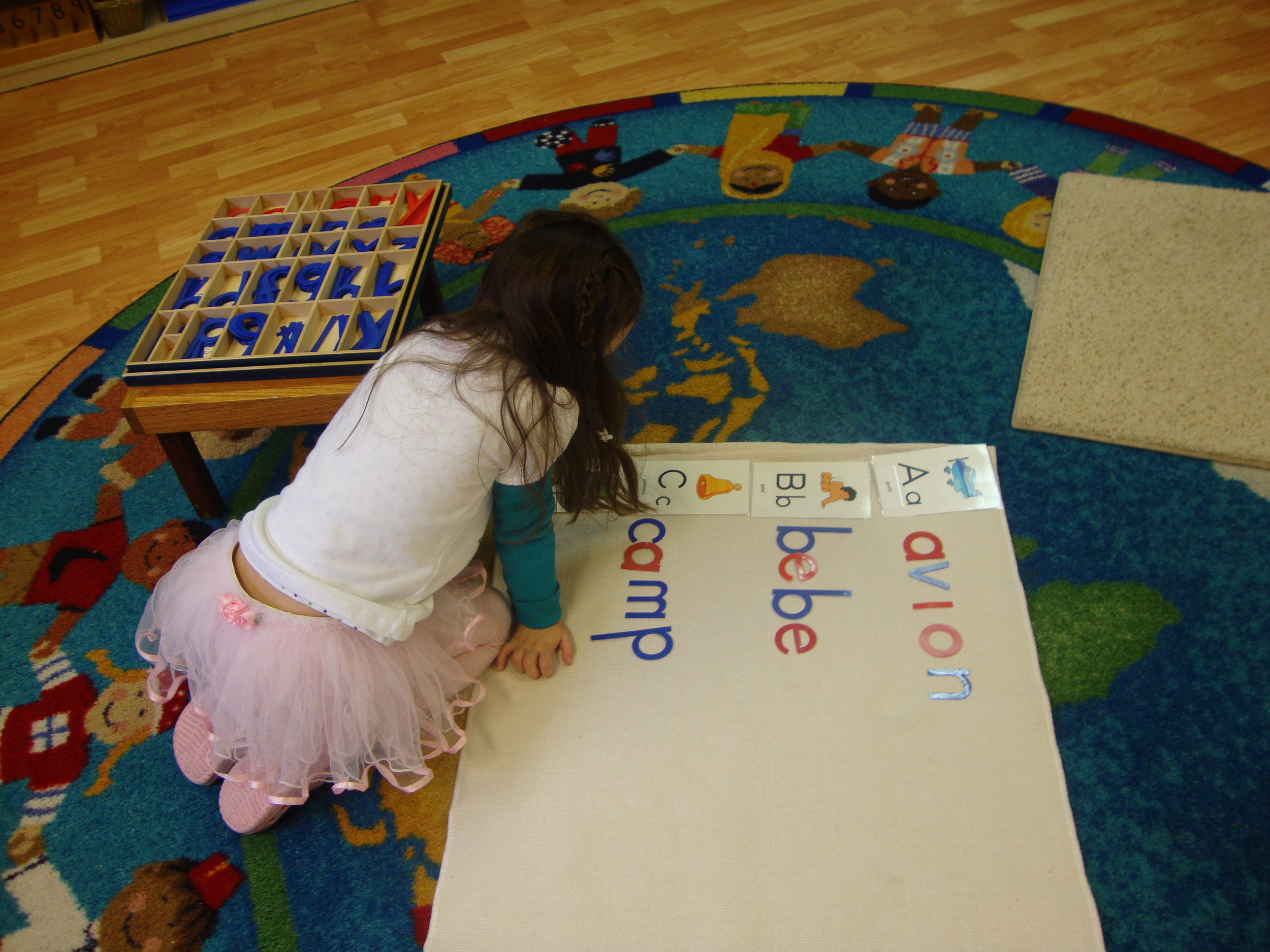
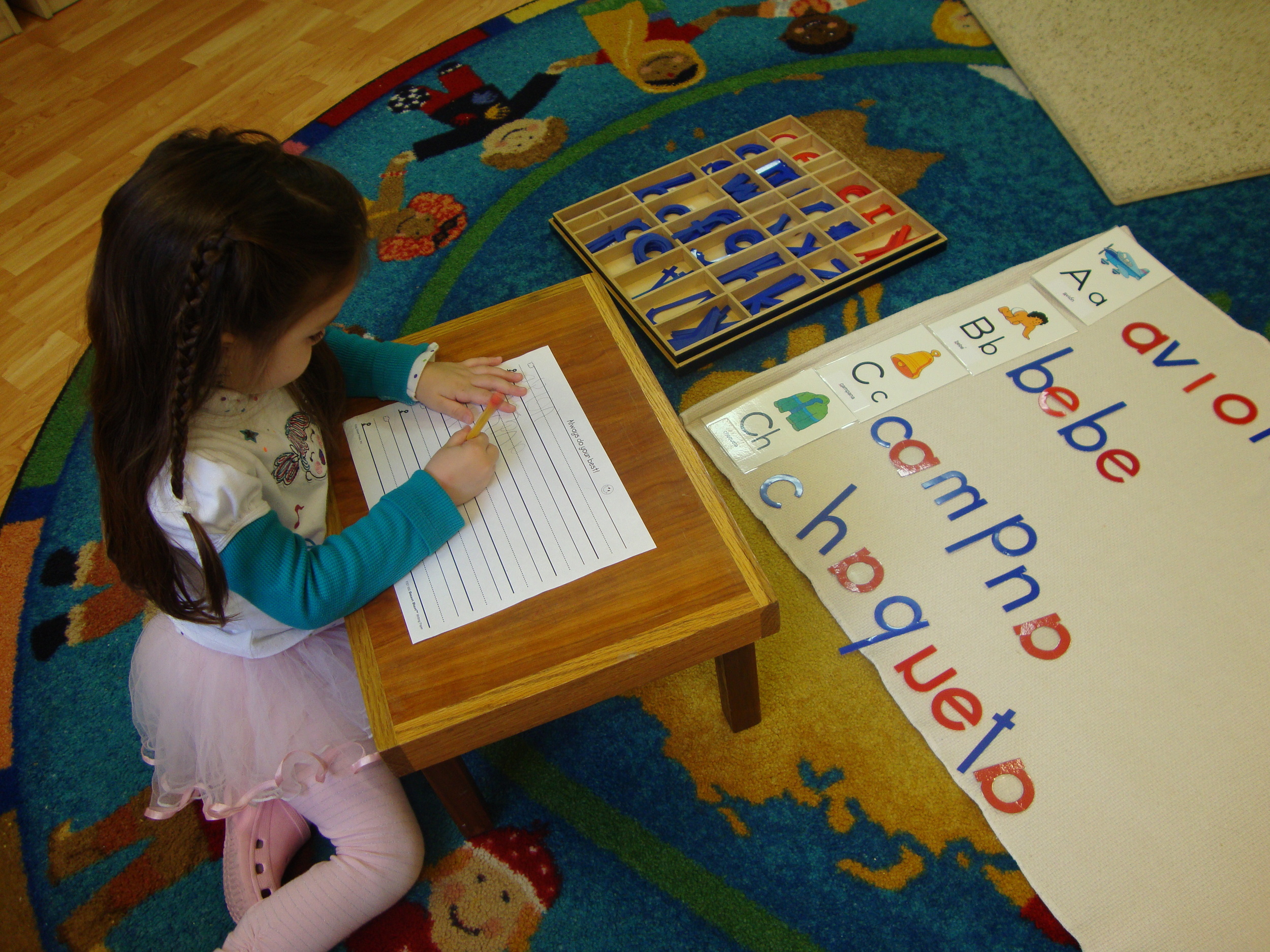
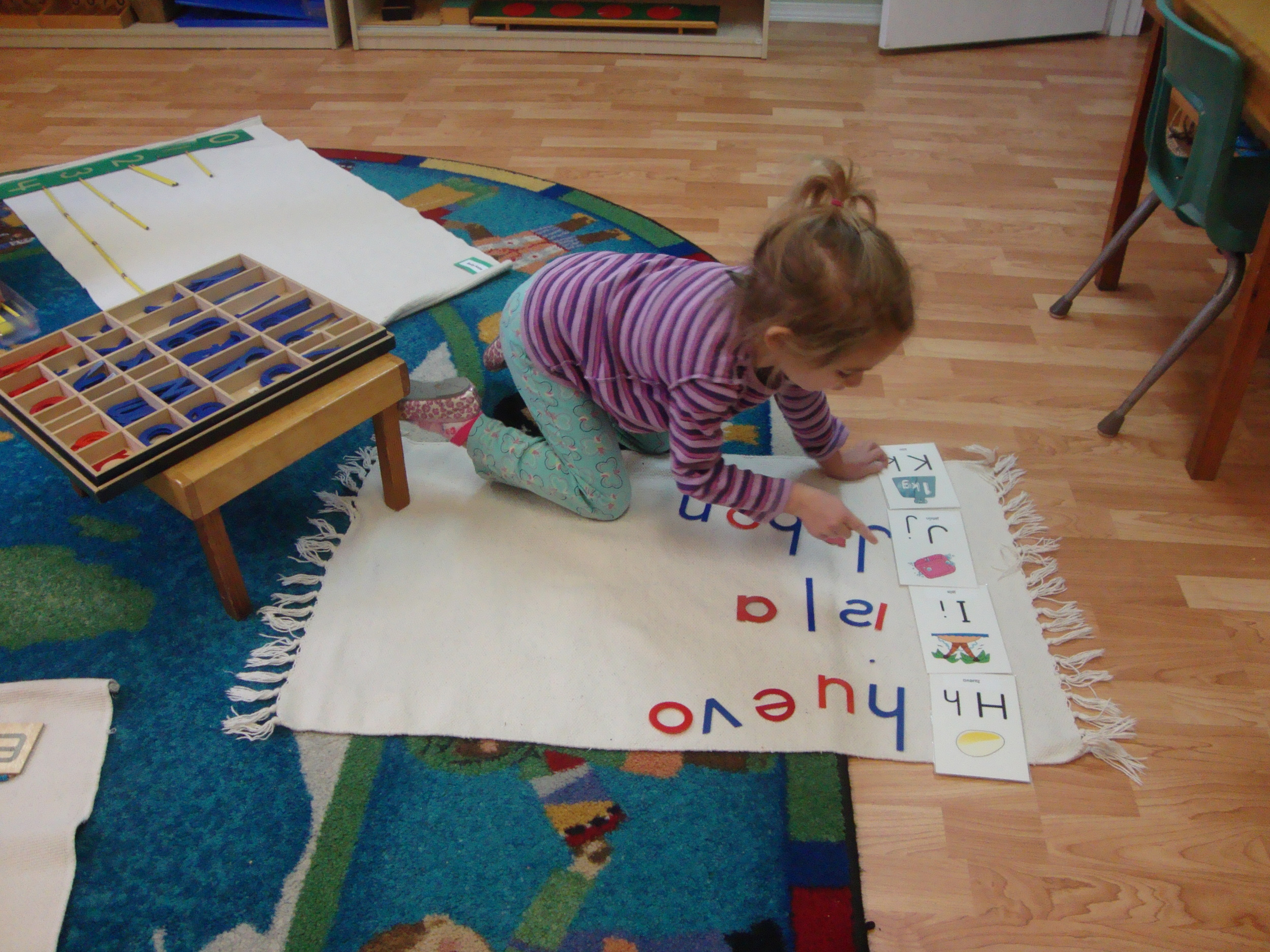
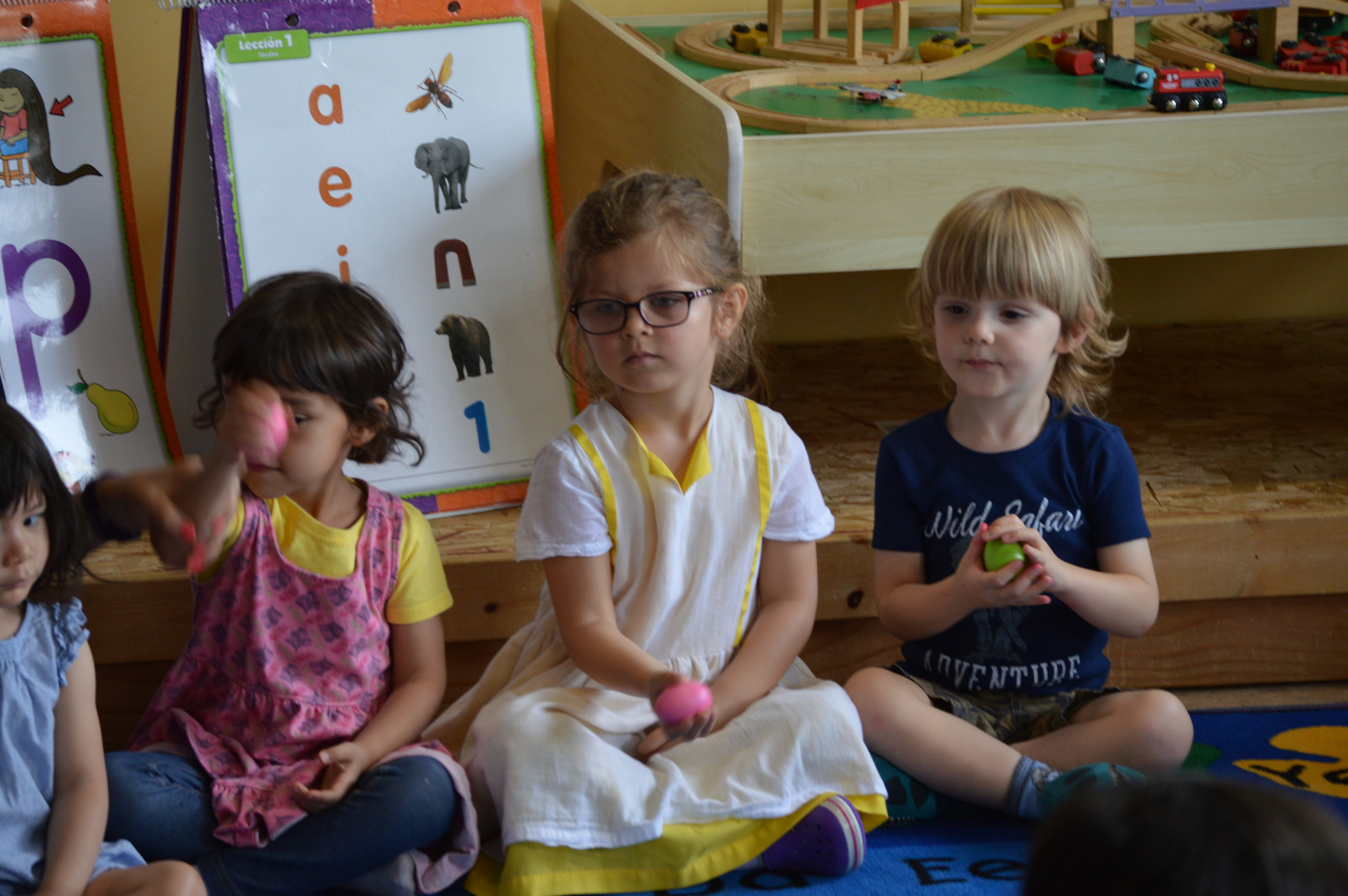
Eastside Bilingual Montessori is the only school in the area that combines the Montessori philosophy of education with a second language integrated schooling.
Children naturally acquire a second language in much the same way they acquire their first language. By listening and participating in an environment rich in a new language, children assimilate meaning because the new words they hear are in context. A strong social-emotional connection with peers and adults who speak the second language also encourages long-term learning of the new language. Research on bilingual education shows that children are able to transfer their connection between multiple labels of meaning to other disciplines like math, music, science, etc. Bilingual children are able to comprehend differences in culture and understand that there are many possible paths to resolve a negotiation of meaning, or solutions to a problem. These children grow to become adolescents and adults who are eager to take on challenges given the confidence they have developed as bilinguals.
Why a second Language?
Many children derive benefits from early second language instruction, such as improved overall school performance, superior problem-solving skills, improved creativity, and ability to approach complex matters. Learning a second language is a fantastic opportunity to keep young ‘sponge like’ brains stimulated, setting good life-long habits.
What is the best age to introduce a child to a second language?
The earlier a child learns a language, the better. Studies have shown that children who learn another language before the age of five, learn with the same part of the brain that they use to speak their mother tongue. Younger children do not have inhibitions and so will speak naturally and with native-like pronunciation.
Will a second language interfere with my child's English ability?
In most cases, learning another language enhances a child's English ability. Comparing two language systems aids with the understanding and the use of each language. Reports have demonstrated that children who have learned a second language earn higher SAT scores.
